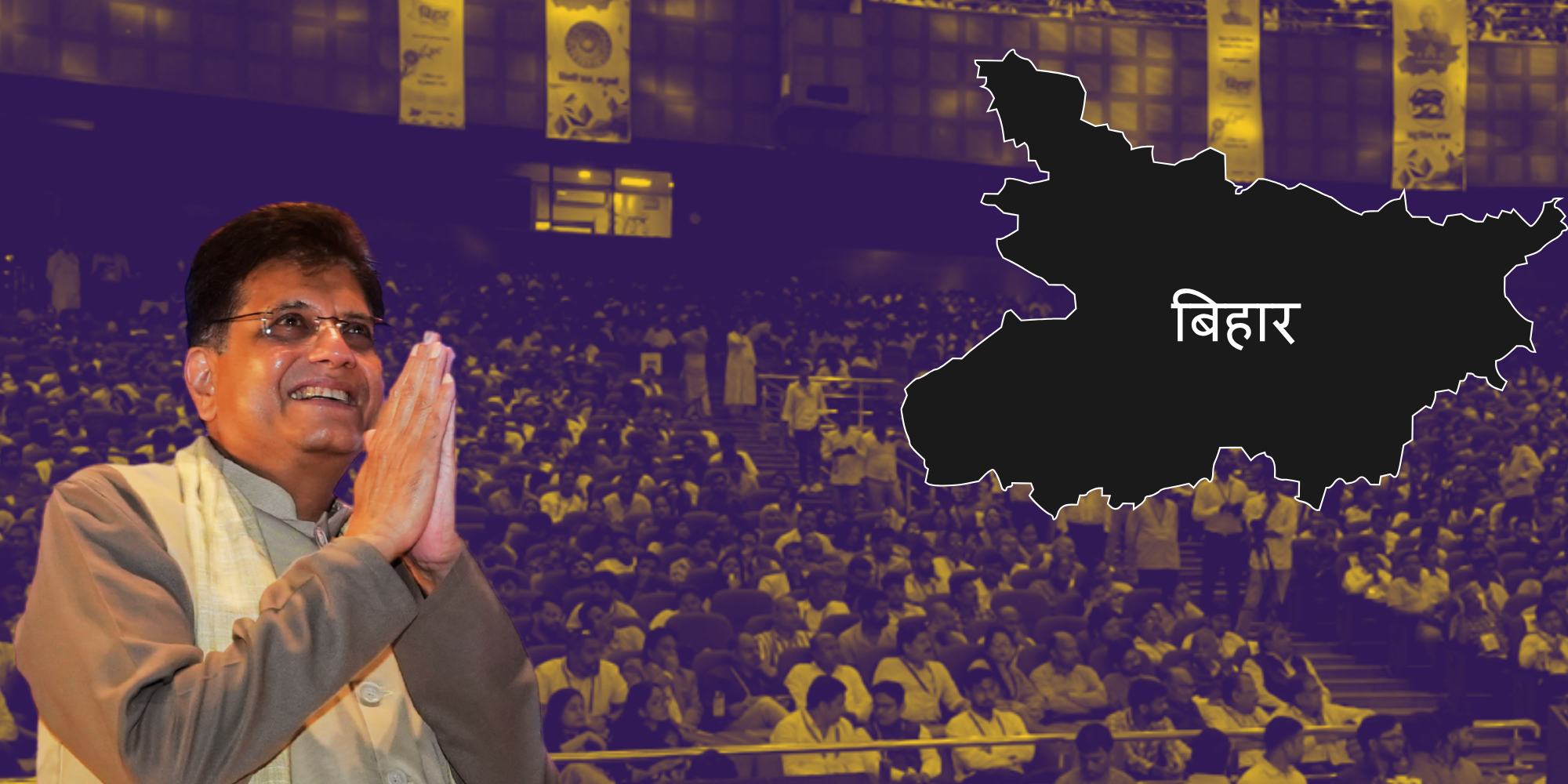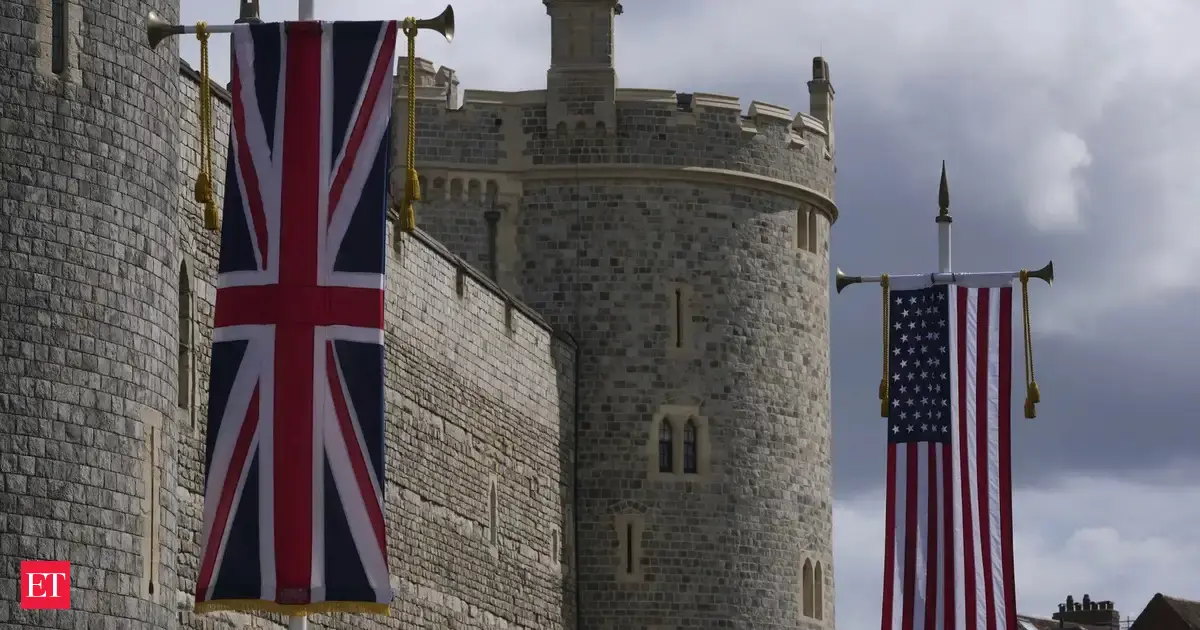By Andrew Marr
Copyright newstatesman

Last weekend’s reshuffle was a spectacular gamble, pitching the Starmer government to the right. This was the most decisive act of his premiership; not only to save his grip on power but to begin a fightback in what the Prime Minister believes is a mortal struggle with Nigel Farage’s Reform UK. It is a fight in which he is bloodied, bruised and – we should be honest – no longer the favourite to win. But it is not yet over. Much will depend on the battle now underway for the Labour Party’s deputy leadership.
After a feverish few days of talking to half a dozen concerned cabinet ministers, many more junior ones, Labour grandees and inflamed backbenchers, it’s clear that British politics is about to be flung into one of the most convulsive six months in modern memory – a period which will, tragically, bear comparison with the Tory paroxysms of the first two decades of the century.
One of the hardest Budgets of modern times is coming in November. If an electoral slaughter follows in the late spring, when the Scottish, Welsh and various local English elections occur, then the Prime Minister’s position is under threat. Many key players are manoeuvring. Ministers are quietly discussing outlandish scenarios, in a mood of general pessimism.
Contrast this with Farage’s army and its host of media supporters, jubilant after their Birmingham conference. Might they be celebrating a tad too soon? Labour people, who seem divided after the loss of Angela Rayner, a controversial reshuffle and an ongoing contest for the party’s deputy leadership, should not throw in the towel.
But we should be clear: this really is a mortal struggle. A victory for Reform, which the polls currently predict, would change Britain as profoundly as Donald Trump is changing America. For liberal Britain, it would be an endpoint: the mayhem of mass deportations, wild promises about slashing the state, a far less pro-Ukraine and Gaza-sympathetic foreign policy, and a new national atmosphere.
The last of these, atmosphere, has not been properly factored in. A Reform government would chop down the BBC. Remember that Farage, Richard Tice and Lee Anderson wouldn’t need to do anything beyond declining to renew its charter. Those working on the renewal now do not believe the charter would survive a couple of years of Reform; Britain would be tossed into a reshaped media dominated by GB News and X. There would be no going back.
This fight between Labour and Reform isn’t a business-as-usual competition between parliamentary competitors, what Reform derides as the Uniparty. Ministers use one word to describe the battle with Farage: existential. This in turn means familiar customs of politics inside government and the Labour Party no longer apply: it explains the turbulence ahead.
In normal times, you might say that it was ridiculous that Starmer, a patriot with a strong sense of public service, and indeed a large parliamentary majority, should be pushed out in less than two years after winning a famous general election victory.
But because of the existential nature of the struggle with Farage, everything – everything – is on the table. Let’s begin with the promotion of Shabana Mahmood to the Home Office with instructions to grip illegal migration.
Mahmood is a different kind of politician to her predecessor, Yvette Cooper. She is the most right-wing member of the cabinet. She can play the media like a Stradivarius – consider how she distracted from liberal policy change for prisons by talking about chemical castration. She will do things on ID cards and perhaps international law that progressive Labourites would flinch from. Her language will be even blunter – a devout Muslim woman can say things a white liberal cannot. But she is untested in a job this difficult; everything depends upon those boat numbers.
A more controversial shift has been threatened over Rayner’s workers’ rights agenda. Business leaders are in a celebratory mood about the measures being watered down at the last minute. Justin Madders, the employment rights minister who had shepherded the bill through, was never wanted in that job by No 10 – he was always Rayner’s person – and was one of the first junior ministers to be sacked.
With Peter Kyle as Business Secretary, given the task of rebuilding relations with employers; Pat McFadden at work and pensions, now in charge of reshaping welfare; and Treasury thinking turbo-charged by Darren Jones becoming chief secretary to the Prime Minister, there is a formidable alliance building up to put growth and employment ahead of all past promises to the trade unions.
They are right to the extent that, after controls on migration, growth is what might turn the polls around. Even so, going after the Rayner-led employment rights bill – now in its final stages in parliament, where the Commons is still to consider Lords amendments – is fraught with terrible danger for Labour.
This danger is receding because key union bosses have privately warned Starmer to back off. Instead, there are strong rumours that No 10 is going after the renters’ rights bill, whose champion, the housing minister Jim McMahon, was sacked in the reshuffle.
But Downing Street’s desire to respond to Reform by shifting policies to the right does not stop there. Starmer planned to move Ed Miliband – now the leading member of the soft left in cabinet – from his energy and climate portfolio. He refused to go. It was a “thus far and no further” moment. Miliband has absolutely no ambition to replace Starmer, whom he regards as a friend. But he is overwhelmingly the most popular member of the cabinet among Labour Party members and feels a duty to speak for his wing of the party.
The plan to push him out failed in part because Downing Street realised it would be just too provocative. This deeply disappoints the Tory press which had wanted his scalp more than any other now that Rayner is gone, but it was a politically sensible retreat. Labour is losing three supporters to the left – to the Lib Dems, Greens and breakaway Corbyn – for every voter it is losing to Reform.
The Miliband story raises serious questions. We have a Prime Minister who backed down on a big change he wanted to make. We have the thought that No 10 may come back again. Far more important than either of those, we have a question mark hanging over the whole carbon-neutral industrial agenda and the future of the Rosebank oil and gas field of Shetland.
Scottish MPs and union leaders such as the GMB’s Gary Smith would be delighted if Miliband had gone; but it would gut the industrial strategy the government is based on. It would also, of course, further push environmentally minded Labour voters towards Zack Polanski’s Greens. When is pushing right pushing too far?
This takes us to the problem of finding a new deputy leader. After Shabana Mahmood declined to stand, Bridget Phillipson has become the favoured government candidate. There is even a suggestion that she will secure the position without a contest because no other candidate will get 80 MPs to back them. This is a remarkable moment for the Education Secretary. Recently, she was being briefed against as an inevitable reshuffle casualty, partly because of the hostility to her schools plan from No 10 adviser, Liz Lloyd. Now Lloyd has gone and Starmer is relying on Phillipson.
It was a very difficult decision for Phillipson. Lucy Powell, however, hopes to provoke a titanic battle for the soul of the party, which Phillipson or any other “establishment” candidate may prove unable to win, should it become a contest. Powell, sacked by Starmer last week, threatens to become the pole around which resistance will coalesce. Crucially, she will also become the Andy Burnham candidate; a soft-left Mancunian; the outrider for the alternative leader waiting from the safety of his Labour stronghold 200 miles from Westminster.
Phillipson’s challenge to defeat Powell is formidable. She will be given some leeway by Downing Street but she will basically be there to defend the Prime Minister to a suspicious party. Consider public hustings, with Powell piling in publicly to attack Starmer on everything from foreign policy to welfare cuts. One cabinet minister characterises this as, “more Gaza, more tax, more borrowing”. Another says: “It will be an absolute nightmare for Keir, though I’m not sure he realises it yet.”
Can Phillipson really see off the challenge? If she loses, Starmer could offer the winner a job in government, thus binding them into collective responsibility. But would they accept?
And then there is Burnham, himself, mayor of Greater Manchester and “king of the north”. He has spent the summer observing a struggling government he feels increasingly detached from. It has been an open secret that he wants to become prime minister and lead Labour in a new direction. Those who have spoken to him in recent weeks believe the iron has finally entered his soul.
It has been another non-secret that the Labour MP Andrew Gwynne might be prepared in some circumstances to surrender his Manchester Gorton and Denton seat to allow Burnham back into the Commons. Gwynne’s future is currently in the hands of the parliamentary commissioner on standards, Daniel Greenberg, after some ill-advised tweeting. Greenberg, a thoughtful and shrewd man, may hold the tenancy of Downing Street in his hands.
Burnham would want to lead a government with a strikingly different tone – more sympathetic to dissent, more open to the Liberal Democrats and to the Green Party – a soft-left administration with strong appeal to many Labour members. He believes that a “more Labour” government would be better at combating Reform. “It would feel like a completely fresh start, almost a new government, full of optimism,” says one ally.
A challenge would instantly destabilise Starmer. The minute Burnham announced his intention, “Andy or Keir” would be the only story in Westminster. It would be very hard for the government to maintain its equilibrium and sense of movement in the circumstances – a huge media carnival whose oom-pah music would swamp all other debate.
Is Burnham heading towards the big music? My guess is he is, though we may not see an imminent announcement. Like many other critics of the government, he is focusing hard on May, when the expected blow of bad election results will produce the next major crisis, first for the Chancellor, Rachel Reeves, and then swiftly for Starmer himself.
One senior Labour figure argues that Burnham would probably lose any by-election to Reform. Others, sympathetic to Burnham, acknowledge that it would be a significant personal risk for him, potentially losing the mayoralty, but believe that his sense of adventure trumps that. “Things are moving very fast at Westminster,” one says.
It would be unnatural if Starmer and Morgan McSweeney didn’t try to stop Burnham from standing. That depends on the votes in Labour’s National Executive Committee (NEC), and whether Burnham could expect support there. Sources say he could: from the unions. People such as Keiran O’Neill of the GMB, Linda Hobson of Unison and Joanne Thomas of Usdaw could be pivotal. As with the struggle between Clement Attlee and Nye Bevan in the NEC of the early 1950s, this could go down to a narrow vote.
It would be strange if Burnham wasn’t talking to the unions. If he’s up against Morgan McSweeney, then he faces one of the most effective internal organisers in modern times.
The Rayner resignation and the reshuffle have hardly produced a new period of stability. Ministers ask whether Starmer has learned from the welfare revolt. Claire Reynolds, now at Labour HQ, warned him he could not get this through and the team of whips who agreed with her have all been sacked, as if telling truth to power is dangerous. Meanwhile, having Jones, the new chief secretary to the Prime Minister, carry out so many junior sackings himself by phone (Starmer was at Balmoral, properly) has caused intense unhappiness.
Looming over all this – the Burnham issue, the deputy leader leadership issue, the direction of government issue – is the most difficult Budget in modern times. There is now a perception among Reeves’s allies that Starmer is isolating his Chancellor at the most dangerous time. The Prime Minister moved Reeves’s former deputy, Jones, to No 10, while demoting her sister Ellie from the cabinet and removing her close ally Jonathan Reynolds, husband of Claire, as business secretary.
The pushback would be that the new “growth team” of McFadden, Kyle and Reed, aided by the new Starmer economic adviser Minouche Shafik, is engaged on the laser-focused investment and employment programme the Chancellor champions, and that therefore this is a win for her.
But politics is also personal. And as she prepares for the Budget, Reeves’s team is sparser than ever and briefing about the rise of Jones to replace her is growing. This is not something that Gordon Brown, her one-time pin-up and mentor, would have put up with.
It all feels fragile. As ever, the markets are watching menacingly. Caught between the energetic surge of Farage and Reform and profound, unresolved tensions about the purpose of his own party, the Prime Minister is beginning to look as if he’s cornered.
If the polling and the voting is atrocious in the spring elections he might face a grim delegation of sad colleagues, carrying the famous pearl-handled revolver in its walnut box. He does not have, even after the reshuffle, a phalanx of utterly loyal cabinet supporters. “We in the Labour Party have been very bad at removing leaders. But these are different times,” muses one.
You might conclude it’s all over, but that isn’t how it feels. There is, even now, a new sense of purpose. Bringing back David Lammy was an interesting move. Starmer said he needed him at his side in domestic politics. So, apart from standing in at Prime Minister’s questions, what does that mean? Lammy is a social conservative who believes in controlling the borders, reducing crime, and getting more British people back into work. He thinks the welfare budget is absurdly swollen. In other words, if the reshuffle tilted to the right, Lammy intends to act as a multiplier.
On every side, if belatedly, the Prime Minister is bolstering what had been an underpowered centre. Amy Richards, the well-regarded aide to Cooper, who caught McSweeney’s eye with her hard work over migration, has come into No 10 as political secretary. She was with the two men, and Tim Allan, the new comms boss, as the reshuffle was being conducted by phone.
All this said, the dangers ahead look deeper and darker than the opportunities seem brighter. Every crisis dealt with is supposed to be followed by resolution, a time of calm. Right now, each crisis just swings open the door to the next one. It is possible for Farage and Reform to slip backwards, once they make enough serious mistakes. They are peaking early. A few months of better-than-expected growth could change Britain’s overheated social atmosphere. The fight is still real. The fight is still on.
But Starmer and his team desperately need to create a political edge that convinces traditional Labour people, even as they grapple with migration and economic worries which have pushed voters further right and left. They need a little poetry, a flush of optimism. It really is a question of whether the centre can hold. WB Yeats thought that, on the whole, it could not. I fear I am with him.
[See also: Who will be Labour’s next Deputy Leader?]



